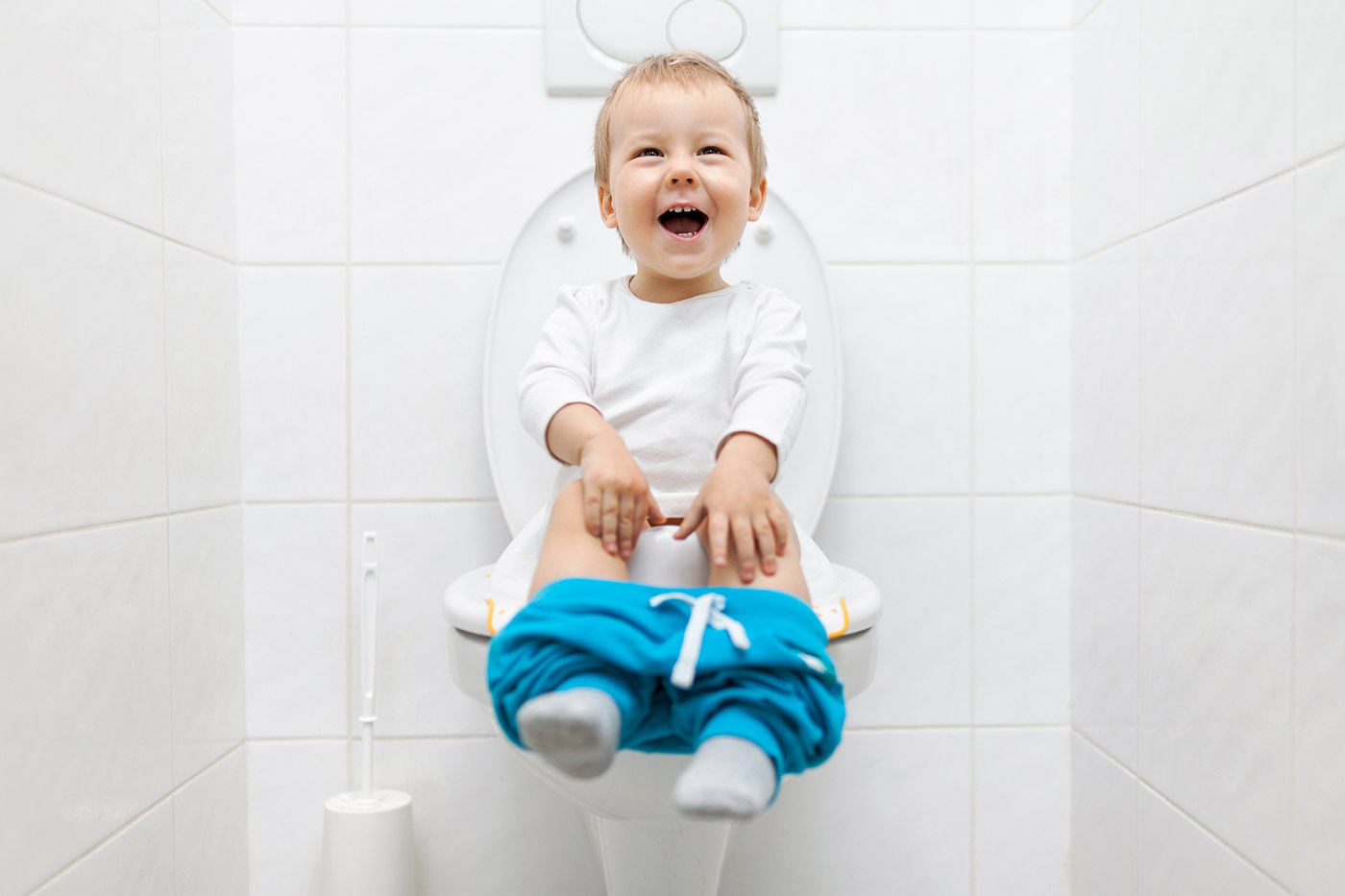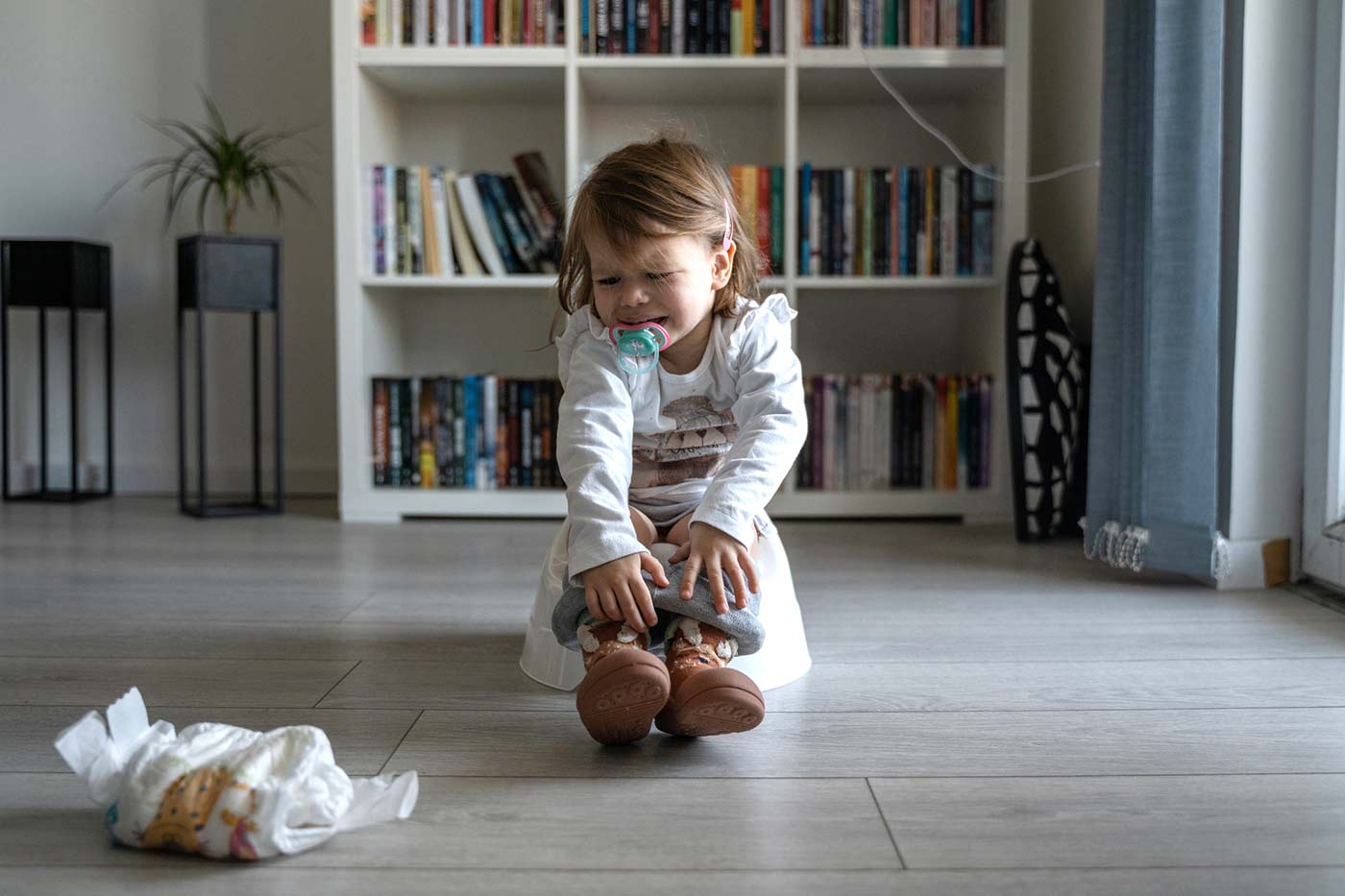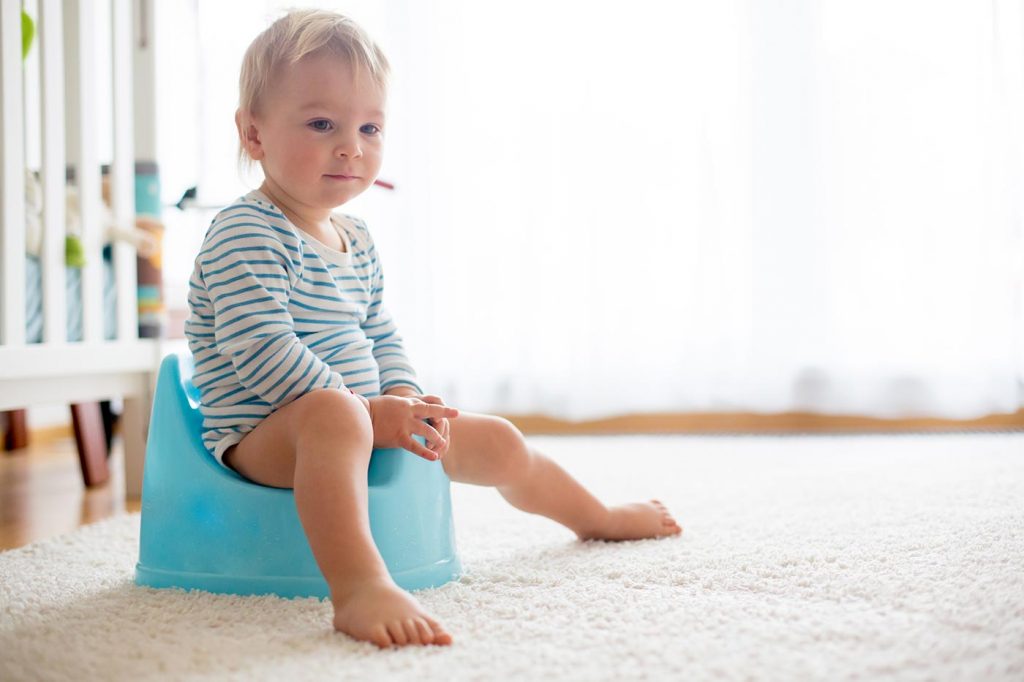How to Get Your Toddler to Tell You When They Need to Potty
Wondering how to get your toddler to tell you when they need to potty? If you’re tired of accidents and ready to try something else, you’re in the right place. In this article, we’ll explore how to encourage self-initiation and communication with potty training using these simple tips!

Is a toddler really potty trained if he won’t go on his own?
My son would use the potty when I took him as part of our routine, but I wanted him to start telling me that he needed to go. If I tried waiting for him to say something, he’d have an accident. The times I forgot to have him sit on the potty, he peed in his underwear—and didn’t even say anything until I saw the telltale signs.
I learned that regularly taking him to the potty every hour was an effective way to get him used to a new way of peeing and pooping. But at some point, he needed to be able to go on his own based on his awareness of his body.
Thankfully, I researched all I could to make this happen and found several strategies that worked. I no longer had to schedule potty trips and could rely on and expect him to tell me when he had to go. Here’s how I helped him do just that:
Table of Contents
Catch the accident
Have you caught your toddler in the middle of an accident? This is a perfect opportunity to send him straight to the bathroom, no matter how “finished” his accident may be.
This allows him to connect the physical sensations to the action that needs to happen, which is to go to the bathroom and sit on the potty. As much as you tell him beforehand what he should do when he needs to pee, there’s nothing like experiencing it right then and there to drill the message in.
Let’s say your toddler is potty trained but poops in his pants. When you see that he’s in the middle of pooping, rush him to the bathroom. Don’t wait for him to finish—take him right away so he knows that going to the bathroom is what he should do when he feels himself pooping.
This is also an opportunity to clean the mess, dump the poop in the toilet, and otherwise connect what his body is doing to where it needs to do it. The key is to help him make the connection that not only is soiling himself a pleasant experience, but that the best way to avoid feeling this way again is to use the potty.
Free email course: Want to potty train without the power struggles? Sign up for my FREE 5-day email course, Peaceful Potty Training! No more putting unrealistic deadlines on your child or using rewards that fizzle. Join the email course now. You’ll also get my newsletters, which parents say they LOVE:
“Hi Nina, I’m so glad I came across your blog and website. Last night while losing sleep and feeling guilty, I read one of your blog posts and it made me feel so much better! I just totally felt connected to you as soon as I read your blog post about potty training and power struggles. I couldn’t connect to any of the other posts out there on the internet!”
Amy Garza
Look for triggers
Even if your toddler may not be able to articulate the exact words to say he needs to use the potty, he might be dropping clues here and there, enough for you to prompt him to go to the bathroom.
For instance, he might have an awkward stance when he needs to pee or hides in a corner if he has to poop. Perhaps he says his belly hurts or you see him grab his crotch or clench his behind.
Look for telltale signs that he needs to go, then urge him to go to the bathroom. This is a perfect opportunity to show him that these sensations are his clues that he should use the potty.
Praise progress
With potty training, it’s easy to measure success as peeing or pooping in the potty. After all, the ultimate goal is for our kids to ditch diapers and use the toilet as you and I do.
But we forget that several steps—both forward and back—need to happen before they reach that goal. That’s why we need to praise them not only for the times they pee and poop on the potty, but for the progress they’re making.
Maybe your toddler refuses to sit on the potty undressed but will do so with her diapers or clothes on. While this is steps away from actually using the potty, praise her for at least giving it a chance in her small way.
Maybe she had an accident, which you might see as a setback. But she looked at you in shock and admitted, “I think I peed.” While she still soiled herself, praise her for acknowledging that she had peed, which is a step above not saying anything at all.

Model the behavior
A fantastic way to show your toddler what he should do is to model it yourself.
Even if you don’t take him with you to the potty (I never did), you can still announce that you need to go. You can say, “I need to take a break from playing to go to the bathroom.”
Even better: explain why you think you need to. You can say, “I drank a lot of water. I’m going to the bathroom to pee.” Or “I feel a tingle in my bladder. Looks like I need to pee!” You’re describing your physical sensations and showing him what to do should he feel the same.
Or let’s say he’s afraid to poop in the potty. While you certainly aren’t, you can describe ways to make it easier. Perhaps you’ll say, “I’m going to leave this door open so I can still see what’s outside the bathroom.”

Use consistent language
One strategy that can get your toddler to tell you when he needs to potty is to stick to consistent language. In other words, use the same language for the same things.
For instance, use the word “pee” in all cases, instead of interchanging it with “pee-pee,” “potty,” “number one,” or other nicknames. Use simple instructions to keep the process understandable, from how to pull down his pants to where he should wash his hands.
Sticking to the same word can help him verbally communicate exactly what he needs without having to consider all the other options.
The bottom line
Trying to convince your toddler to tell you when he needs to use the potty can be challenging. With these tips, you can encourage him to be more aware of his bowel movements and let you know he has to go. Rest assured, he’ll not only let you know he has to potty, but will do so on his own—all without having to take him every hour.
Get more tips:
- 6 Signs Your Child Is Not Ready for Potty Training
- How to Potty Train Gradually
- Potty Trained Toddler Having Accidents on Purpose? Here’s What to Do
- How to Overcome Your Child’s Potty Training Resistance
- When to Stop Potty Training and Wait
Don’t forget: Join my newsletter and sign up for the FREE 5-day email course, Peaceful Potty Training:

